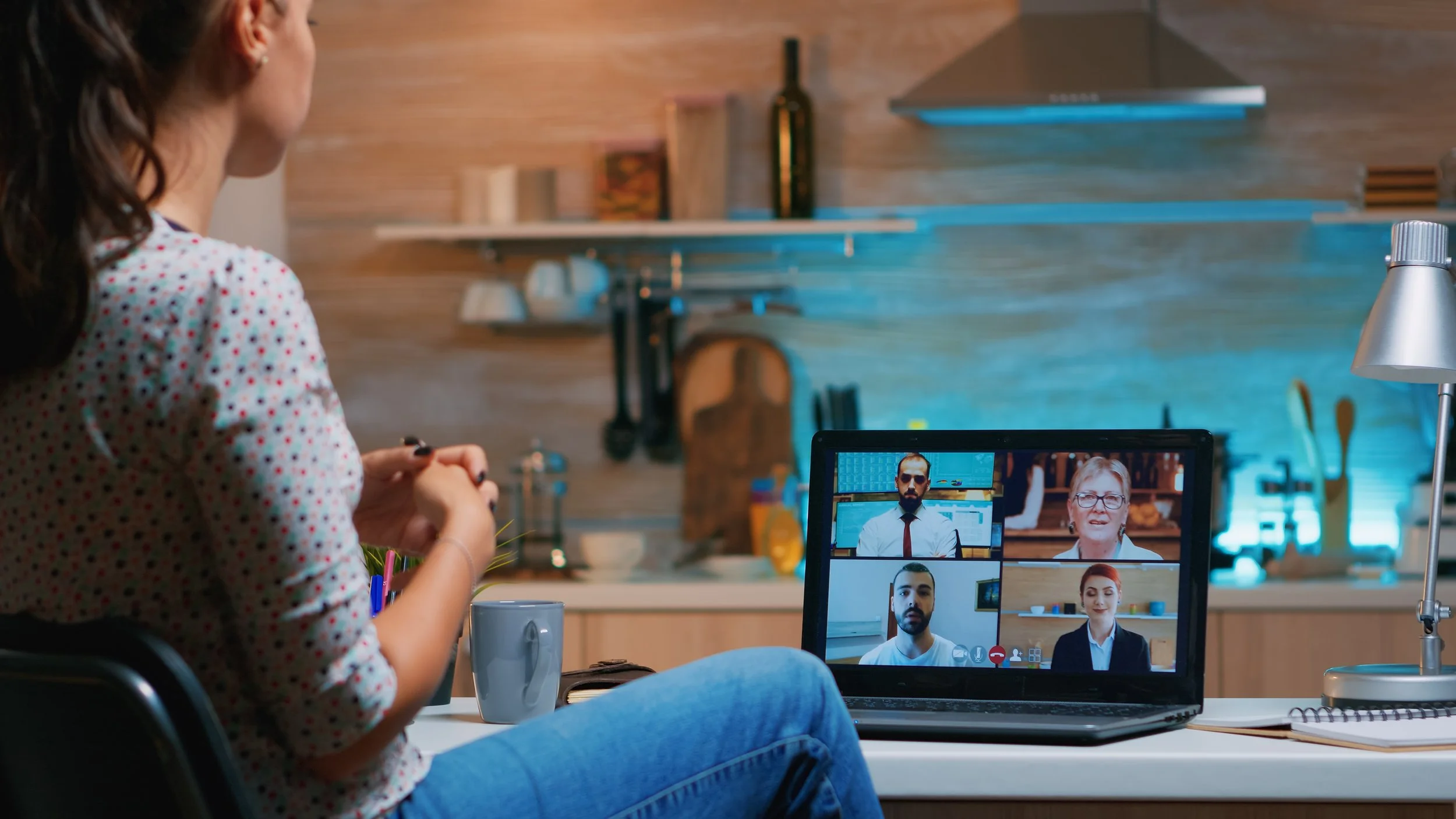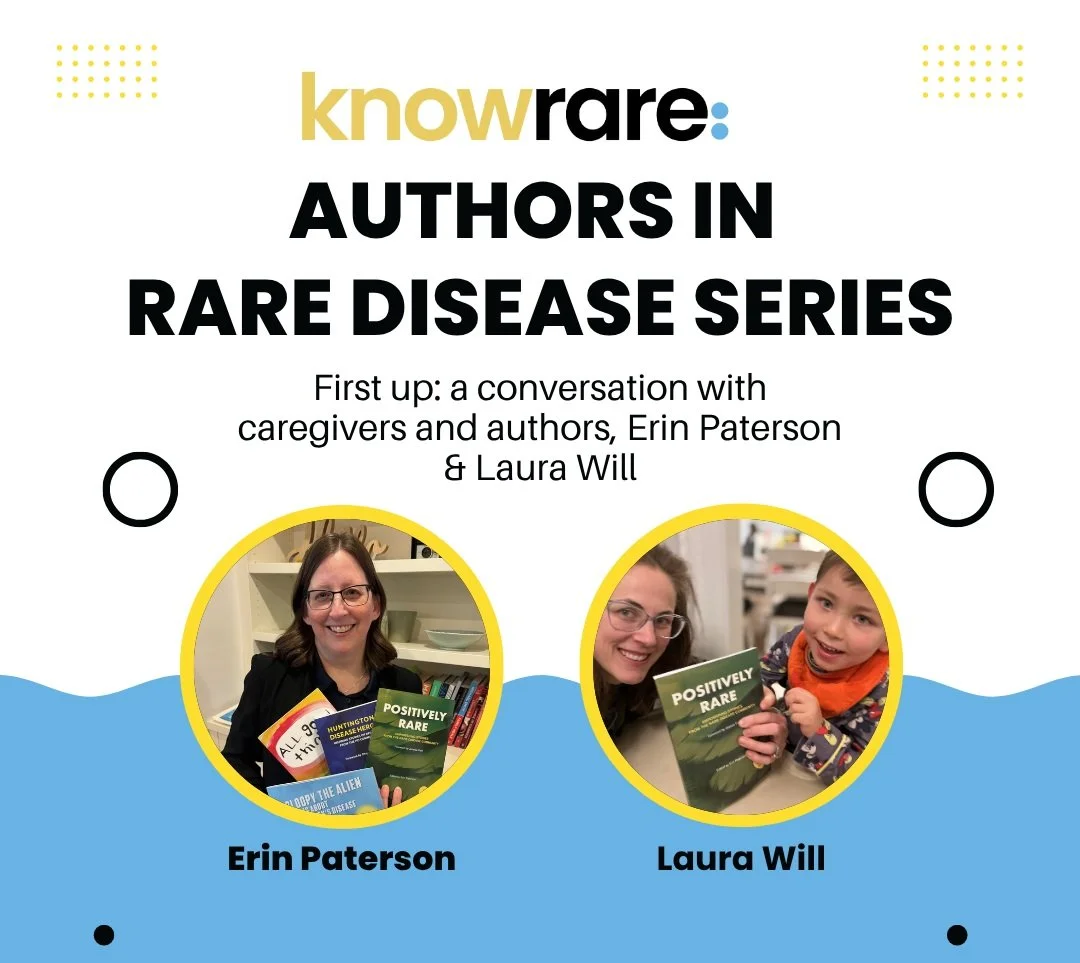10 Books for Families of Children with Rare Disease
By Laura Will
After my son was diagnosed with a rare condition, I felt unsure how to talk to my kids about the diagnosis and corresponding disability. His doctor’s appointments and hospital stays filled up our family life, along with the anxiety that comes with the daily care needs.
Here, Hadley, age 3.5, is reading “Let’s Go Play” all about her brother’s adaptive equipment. Empowering and imaginative, this book makes all the equipment super cool.
Children’s books have been a wonderful way to safely initiate conversations with our kids, now ages 3.5 and 1.5 years old, about the difficult topics that exist within the world of rare disease. The small bookshelves in our kids' rooms started to quickly fill with books that talked about illness and disability, demystified adaptive equipment, and embraced big feelings and wellness practices. This booklist represents the books that have been most loved by our family so far. They are all written for a toddler and elementary school audience, but enjoyed by all ages.
I have found that gifting these books or others like them to our close friends and family with young children has been helpful. The books explain some of the concepts and equipment that are a part of our rarelife journey and have helped equip our family’s support network with some of the language and understanding. Our children have also brought them into school with them, and shared with their teachers and classrooms. These books can welcome our childrens’ friends, teachers, and relatives into our journeys, sparking dialogue and understanding.
Books for children about illness, disability, and embracing differences
Lemon the Duck
Written by Laura Backman & illustrated by Laurence Cleyet-Merle
This is a story of a classroom that works to support Lemon, a pet duck who is not able to walk or feed himself. With compassion and creativity, the students find ways to maximize Lemon’s independence. A gorgeously illustrated book is uplifting and fun to read. This favorite of my daughters is definitively kid-approved.
Bev and Lil
Written by Camille Josephine Carr & illustrated by Lela Meunier
A heartwarming and deeply sentimental book about the unconditional love that fills the space around two sisters, one of whom has a life limiting illness. This story speaks to the ways play can change and still be fun when one child is ill and has less energy. The duo of siblings demonstrate the joy of embracing the present moment, while knowing they are making beautiful memories with their precious time.
Prince Noah and the School Pirates
Written by Silke Schnee & illustrated by Heike Sistig
This book is an awesome adventure into a world where children are separated onto different ships for their school days depending on their gender or ability. When pirates attack, the strengths of each group of children are required for their great escape! An exciting journey with subtle lessons in inclusion.
Let’s Go Play
Written by Shelby McCarthy & illustrated by Rachel Batislaong
Written by a rockstar rare mom who is also a speech language pathologist, this book demystifies all adaptive equipment. Each page is devoted to a different type of adaptive equipment, playfully showing that these are tools kids use to help them get out and play. I have gifted this book to all of my son’s young cousins. The last two pages are a glossary of terms for adults, a perfect cheat sheet for all our family’s adaptive vocabulary.
Don’t Call Me Special: a First Look at Disability
Written by Pat Thomas & illustrated by Lesley Harker
An instructive book questioning the assumptions people make about others who look or act differently. Throughout the book there are questions to initiate conversation with your child or a classroom; and at the end of the book there are suggestions for adults about reflecting on their own ableism prior to discussing with children.
Madeline
Written and illustrated by Ludwig Bemelmans
This classic book details a hospital stay for little Madeline, and the misplaced envy that her peers feel. There are natural moments of jealousy that occur for a child as they see their parents attention often diverted to a symptomatic sibling. I found it offered an opportunity to talk with my well child about the disproportional attention that my sick child often gains.
Books about big feelings and embracing mindfulness
How Big Are Your Worries Little Bear?
Written by Jayneen Sanders & illustrated by Stephanie Fizer Coleman
This book offers a simple and effective way to check in with your child about their level of anxiety at any time. My daughter immediately grasped the concept, and has asked for this book specifically during times of high stress in our household. The Little Bear character demonstrates adaptive ways to process anxiety, through sharing their thoughts with someone trusted and creating art to express their worries. The last couple pages offer truly useful tips for adults on various ways to approach and calm an anxious child.
Breathe Like a Bear
Written by Kira Willey & illustrated by Anni Betts
This is a great resource for introducing mindfulness, breath work, and improved self-regulation to a child. Through creative prompts this book guides children and their grown up through their senses and breath to cultivate calm and focus. We have used this book to try and reset the energy at bedtime with great effect.
In My Heart: A Book of Feelings
Written by Jo Witek & illustrated by Christine Roussey
This book is all about feelings - anger, hurt, shy, happy, excited, calm. All feelings being valid and transient. It subtly teaches us that each feeling is okay, should be acknowledged, and will not last forever. The creative illustration with a heart shape cut out is welcoming and fun for children of all ages.
I Can Do Hard Things: Mindful Affirmations for Kids
Written by Gabri Garcia & illustrated by Charity Russell
Written by a mother who is a professional counselor, this book offers positive affirmations paired with widely representative and uplifting illustrations. It is important to reflect on what we say to ourselves. With guidance from this book, we learn to control and empower that inner dialogue.
Laura reading with her two children Alden and Hadley
Laura Will is a mother to two young children. Alden, her younger child, has diffuse bilateral PMG. She and her husband David Nicholson live on Cape Cod in Massachusetts. As a family they love spending time by the ocean, and biking to the children’s library and ice cream shop in town. Locally Laura is working with Cape Cod Children’s place, establishing a group supporting parents of medically fragile and/or disabled children.
Laura volunteers as a part of Massachusetts General Hospital for Children Storybook Ball committee, a contributor to Courageous Parents Network, and a volunteer for Polymicrogyria Awareness Organization.
Her career started as case manager for adults with disabilities, after which she attended Columbia University, graduating with a Masters in Nursing. As a nurse practitioner, Laura worked in geriatric and palliative medicine. Since Alden’s diagnosis, Laura has studied and been practicing mindfulness based therapies. Her personal creative outlet has become poetry, a powerful tool for expressing her joys and sorrows.










































